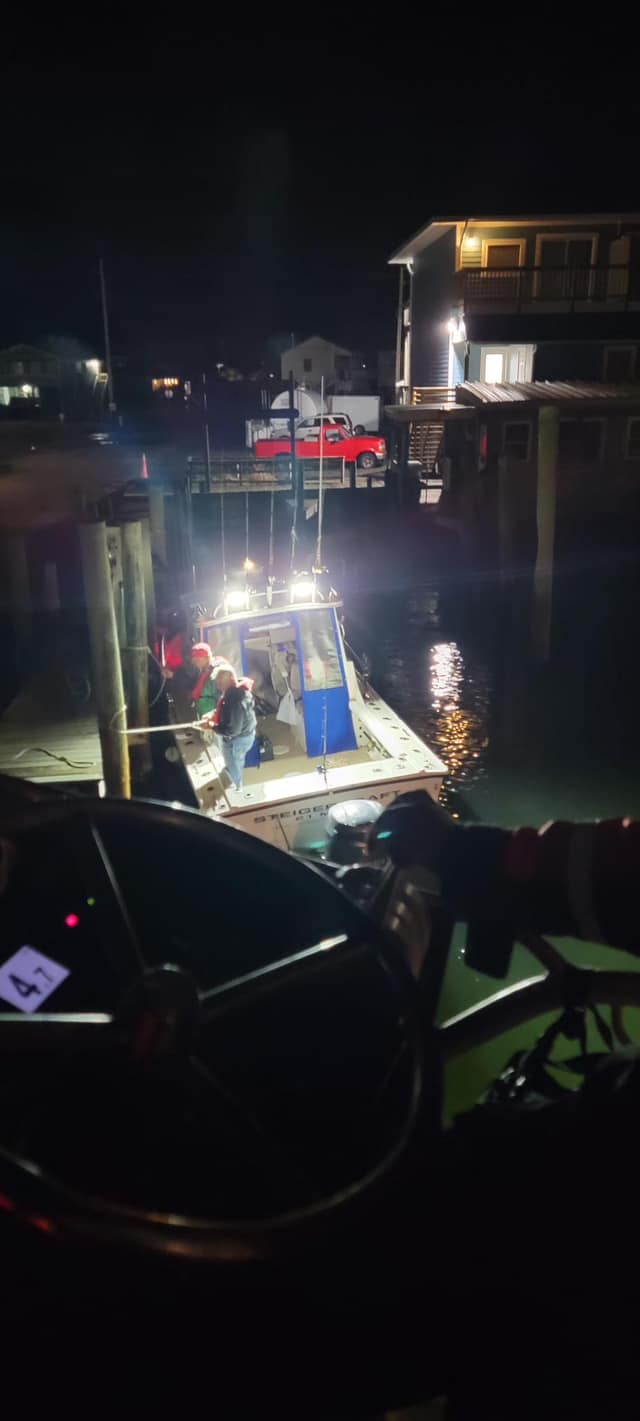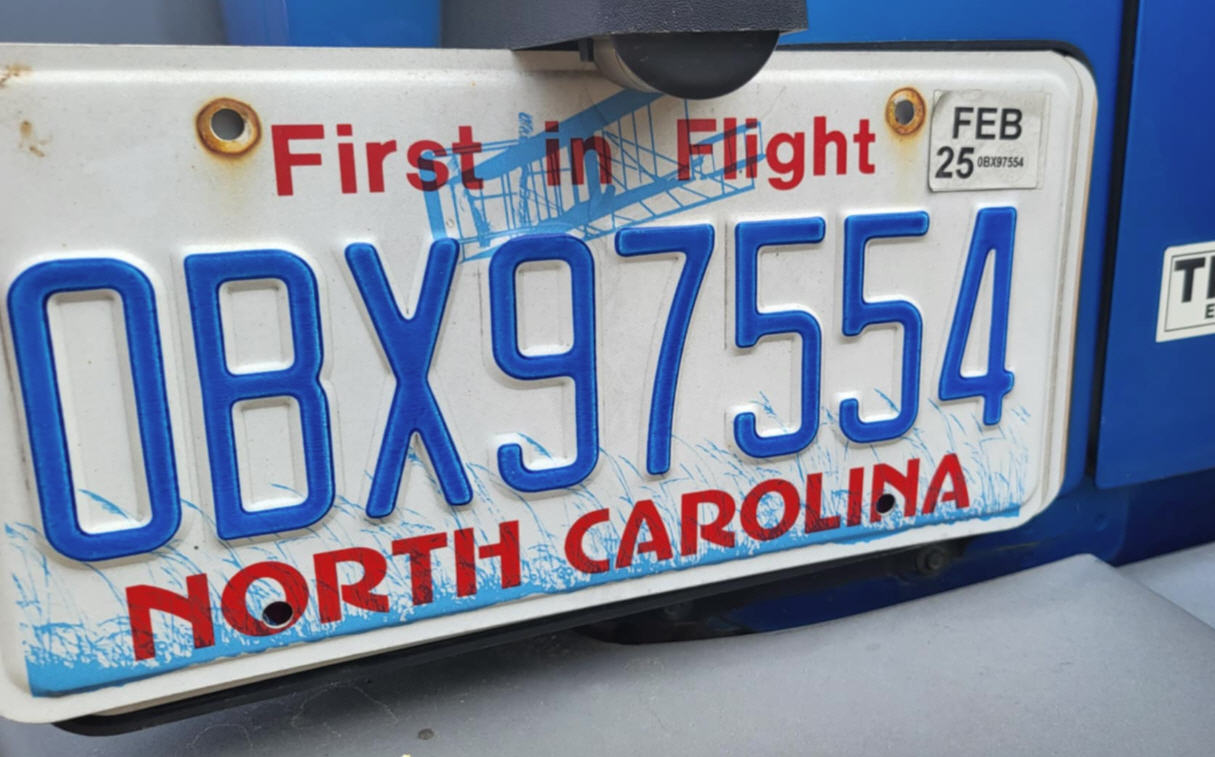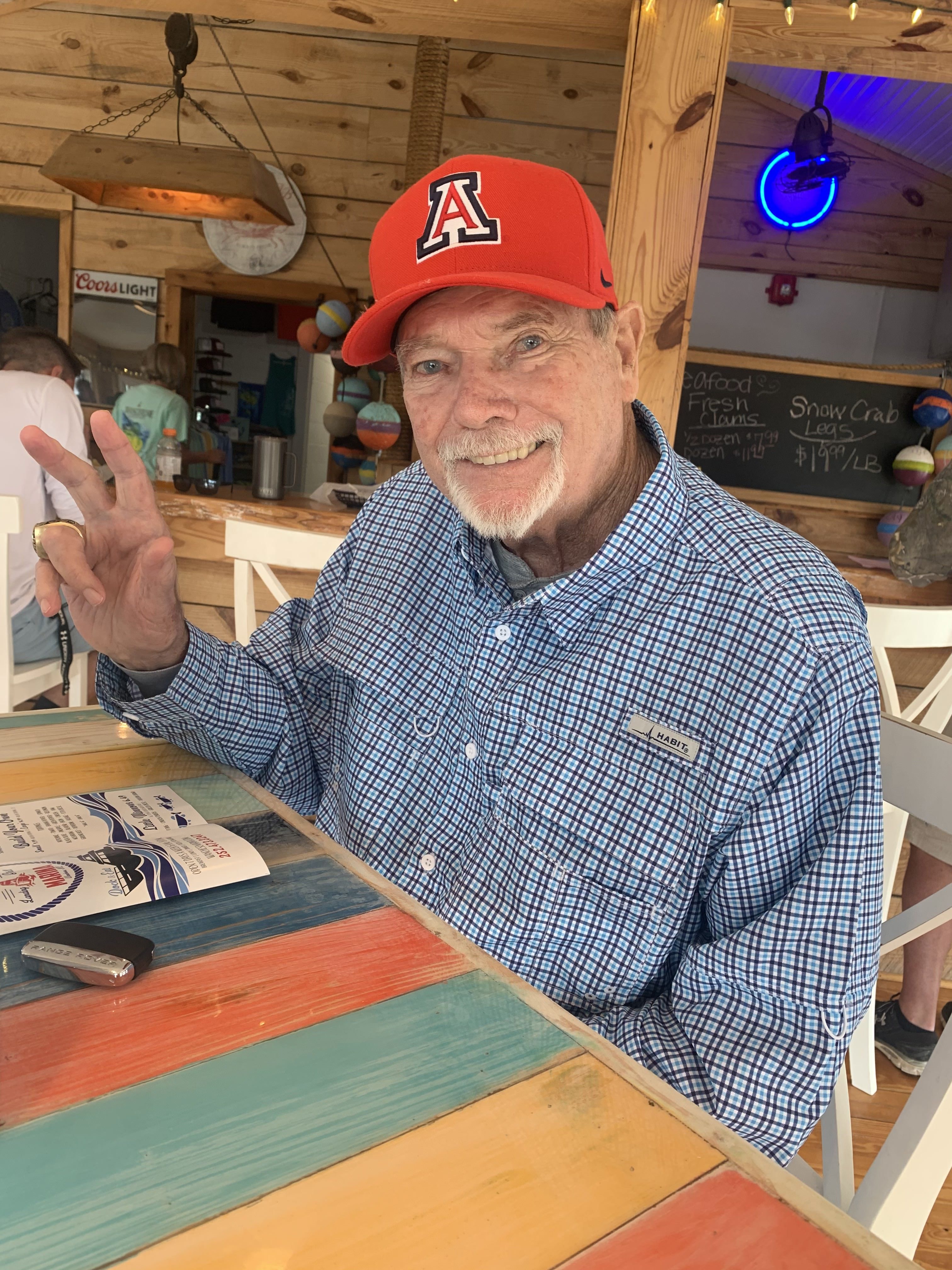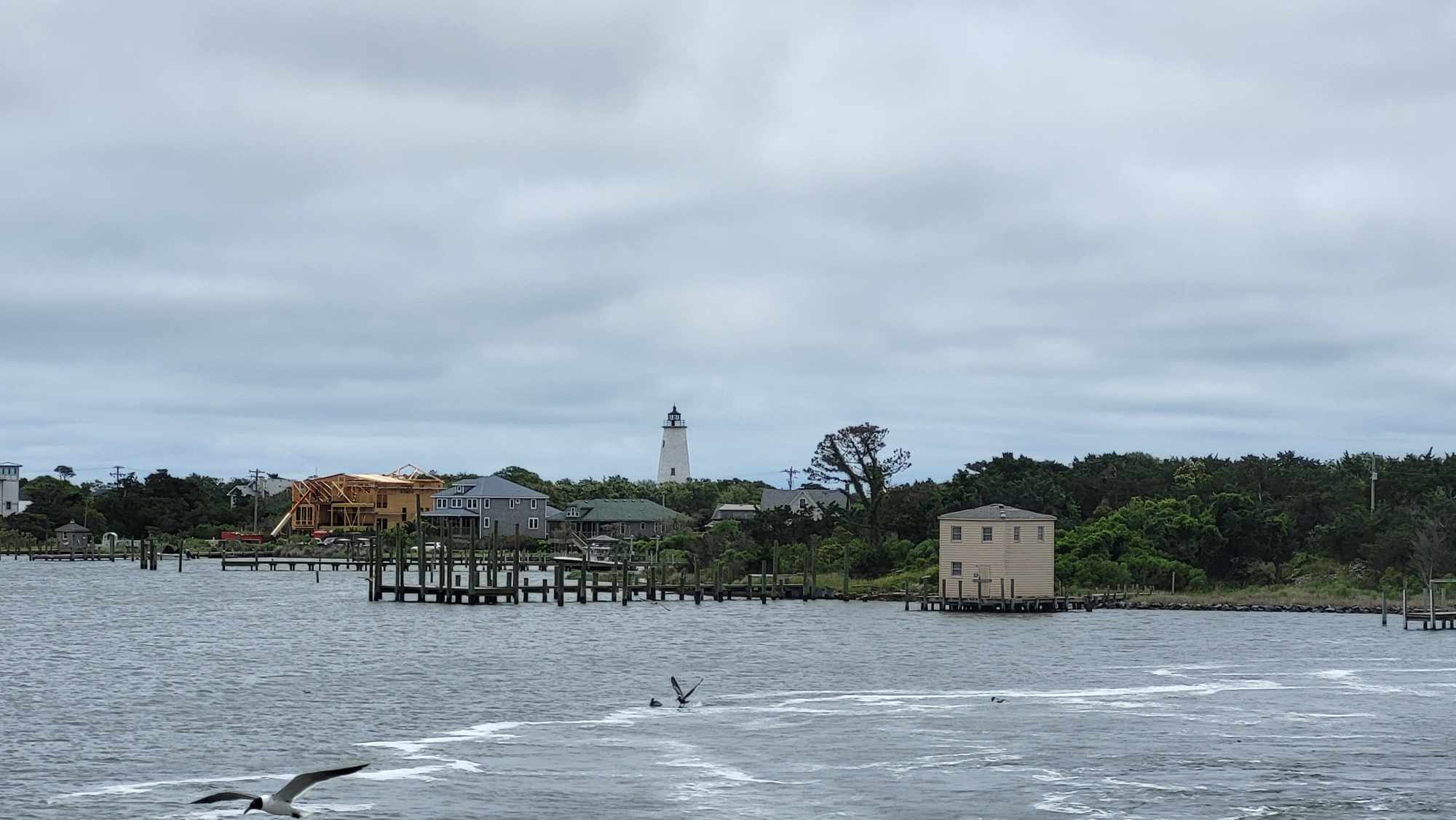Plastic Bags Only Part of the Problem
By CATHERINE KOZAK
COASTAL REVIEW ONLINE
Bucking the wishes of nearly every local entity that keeps the communities’ wheels turning and the tourism machinery humming, a bill to repeal a ban on flimsy plastic grocery bags on the Outer Banks is still alive in some dark corner of the North Carolina General Assembly.
The prospect of having to go back to hundreds of thousands of the lightweight bags suddenly re-entering the waste stream, littering coastal roadsides, floating in waterways, getting impaled on trees, filling landfills and being stuffed unknowingly into recycling collections, only to clog up the recycling machinery and contaminate the other recyclables, makes the timing right to hold a community outreach about establishing a plastic bag recycling program.
At a meeting held last month in Nags Head, sponsored by the Carolina Recycling Association, speakers mostly sidestepped the politics of the proposed repeal and focused on how to launch a local campaign to keep plastic film and bags out of landfills and recycling bins by returning them to retail stores.
As it is now, only about 1 percent of the 100 billion plastic bags – about 300 per person – produced per year are returned for recycling, said Mindy Love, environmental specialist, recycling education and outreach at North Carolina Department of Environmental Quality. Each of those bags is used for an average of 12 minutes.
Love noted that some version of a bag ban repeal could be found in four different legislative bills. The Outer Banks is the only area in the state where plastic grocery bags are banned.
But even if the bags were outlawed everywhere in North Carolina, there would still be plenty of the lightweight plastic that needed to be diverted from the trash and off beaches, Lisa Rider, board director of Carolina Recycling Association, told a roomful of people at Jockey’s Ridge State Park.
Not only are plastic bags always one of the top 10 litter items found in coastal clean-ups in North Carolina and worldwide, the Ocean Conservancy has named them the second-most deadly litter to marine animals, which mistake the bags for food. Only abandoned fishing gear is deadlier. The bags also ta
ke hundreds of years to decompose and leech pollutants into the environment.
“We really want to focus on reduction and re-use,” said Rider, who is also president of the Plastic Ocean Project, an advocacy group focused on the global plastic pollution problem.
Rider said a multi-county campaign to educate people about recycling plastic bags and plastic film was kicked off July 8 in Onslow County at the Earth & Surf Festival.
“I have participated in beach cleanups for 25 years,” Rider said in an earlier interview. “I have personally noticed an increase not just in plastic bags, but in plastic in general. These materials just do not go away. What does that mean for our future?”
Rider, who is employed as deputy director of Onslow County Solid Waste Department, encouraged the community to work with initiatives like the Wrap Recycling Action Program, or WRAP, to educate the public about where to recycle plastic wrapping and plastic bags that cannot be recycled with oth
er recyclables.
During a call in to the community forum, Shari Jackson, WRAP program director, said the program’s goal is to double the amount of plastic film recycling by 2020.
“We certainly understand there’s no one-size-fits-all solution for film,” she said. “That’s why we’re working with communities.”
Sponsored by the American Chemical Council, WRAP is promoted as a national public awareness and outreach initiative that works to educate consumers about the kinds of plastic film that can be recycled, and how and where to recycle it.
Jackson said many people don’t realize that the plastic film can be recycled, but there are 18,000 locations across the U.S. that will accept plastic film and bags for recycling. On the Outer Banks, retail stores such as Food Lion and Harris Teeter have marked bins to collect the plastic material.
According to the WRAP website, plastic film packaging is made of soft polyethylene and includes bags used for groceries, bread and dry cleaning, as well as sandwich and zip-top bags and bubble wrap. It is also the plastic packaging used around paper plates, napkins, paper towels, diapers and bathroom tissue.
But there are numerous caveats that make recycling such plastic a challenge. First, it has to be clean and dry. Labels need to be removed. It cannot include pre-washed salad bags, degradable bags, frozen food bags or any bag that has been glued.
According to a 2013 study done for San Diego by The Equinox Project, a nonpartisan policy initiative, only a small amount of single-use plastic bags, or similar plastic film, is recycled. The majority of bags diverted toward recycling processes, the report said, are ultimately taken to landfills due to the high contamination rate of the material and the lack of markets.
A September 2014 article in Mother Jones magazine said that the Environmental Protection Agency estimated that only 12 percent of plastic grocery bags made it to designated recycling facilities.
Lacking any sustained or consistent way to recycle thin plastic, consumers often toss it in with their curbside recyclables, or put their recyclables into plastic bags before throwing them into the recycling bins.
That is a big issue, because when the recyclables are being sorted, the bags get caught in machinery. Sometimes the machines must be stopped a couple of times a day so the plastic can be untangled from the works. The plastic also contaminates a portion of the recyclable material.
“The problem with bags and film is not that they’re recyclable or not, it is how to collect them,” said John Coward, operations manager at Eastern Carolina Vocational Center.
The center’s Material Recovery Facility handles 900-1,000 tons of comingled recyclables from 13 counties every month.
“We get a lot of bags – a lot more than we want to get,” he said. Out of necessity, he has learned that the best way to deal with the bags is to have a worker pull them out by hand at the front of line. “There’s just so much education you can do.”
San Francisco was the first municipality to ban the bags in 2007, followed over the years by hundreds more across the country. The European Union, India and China, among dozens of other nations, have also banned or restricted plastic grocery bags. Last year, California implemented the first statewide ban on the bags.
Few Outer Banks residents, local businesses or local governments support repeal of the legislation enacted in 2009 that banned the bags on beachfront areas on the Outer Banks in Hyde, Currituck and Dare counties.
Even fewer would oppose a program that encourages recycling of all kinds of plastic bags. Still, the bill’s sponsors who represent the Outer Banks in Raleigh – state Sen. Bill Cook, R-Beaufort, and state Rep. Beverly Boswell, R-Dare – say the repeal is necessary to encourage merchants to create more jobs, and that consumer education about littering and plastic bag recycling would be more effective.
In late March, Cook introduced legislation that would repeal the bag ban. Boswell had earlier introduced a similar House bill. Both bills may be considered in an upcoming special legislative session.
Cook has said that several large retail stores have asked for the repeal. The North Carolina Retail Merchants Association also supports repeal.
In explaining his reason for sponsoring the bill, Cook cites data from the state’s now discontinued Big Sweep litter-cleanup effort that showed no correlation between the ban and less plastic bag litter. He also says that most retailers on the Outer Banks are not in compliance with the law, and it does not address the overall problem with litter.
“The purpose of the legislation that passed in 2009 banning plastic bags was to tamp down on the bags that end up flying around on our beaches – a noble goal, to be sure,” Cook said in an email. “However, this ban has not been a success and it’s a regulation that impacts North Carolina businesses large and small … And, make no mistake – should the ban be repealed, retailers may continue to use paper bags or utilize other materials or methods that work best for their business and customers.”
According to Ocean Conservancy data, volunteers who have conducted beach cleanups in North Carolina have removed 37,000 plastic grocery bags since 2008.
Sara Hallas, coastal education coordinator at the North Carolina Coastal Federation’s northeast office, said disbanding the state’s Big Sweep effort has made it more challenging to coordinate data collection on littering, although some groups, such as Surfrider, still conduct beach sweeps.
Little more than anecdotal information appears to exist about effects before and after the bag ban on the Outer Banks.
“We need data to prove its effectiveness, and the data is lacking,” Hallas said.
There are also conflicting national studies about the cost and effectiveness of plastic bag bans. But there does seem to be agreement that plastic bags are bad for marine animals and create too much litter and trash.
John McIntosh, service manager at Hatteras Recycle in Salvo, said he is supportive of any program that could decrease the number of plastic bags in the environment.
But as someone who sees the enormous volume of recycling generated by thousands of tourists – on a recent week, his company collected 30 tons of recyclables from the 1,600 accounts it services– he is skeptical about how effective plastic bag recycling could realistically be.
“Judging how people deal with recycling while they’re on vacation, that’s the last thing they’re going to think of, is returning plastic bags,” he said. “They’re just going to throw them in the garbage, or throw them in the recycling container.”
Plastic Ocean Project

















